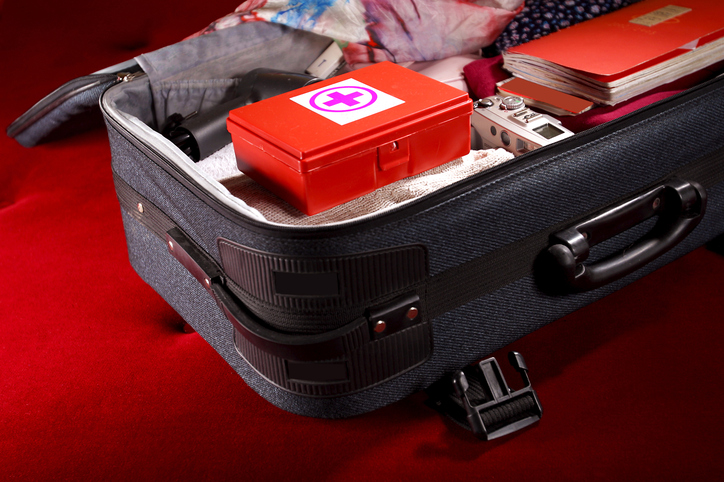Are you packing your bags and getting ready to head away on holidays? If you’re thinking about what to take with you, make sure to include a small first-aid kit with some medical supplies to avoid any health problems ruining your relaxing days away with the family.
But, what should I put in it?
When it comes to planning a trip, it’s just as important to have a good first-aid kit in your bag as it is to have all your documents in order. That’s why, LookOut Pro, along with recommendations from Sónia Cibrián, GP and family doctor at mediQuo – a 24/7 medical chat app –, we tell you what you should keep in mind when organising your first-aid kit, which should be durable, light and ideally have some type of thermal insulation.
- Who are you travelling with? It won’t be the same if it’s only adults or if you’re travelling with children, babies or pets. Needs change depending on who is travelling.
- Where are you going? Depending on the destination, you may need to take different health products. It’s not the same to go on holidays in the mountains as it is to head to the beach for a few days to relax or to go sightseeing in a city, or on a safari in the wild.
- How long? Remember, the longer you’re going away on holidays, the more careful you have to be.
5 ESSENTIAL MUST-HAVES IN YOUR FIRST-AID TRAVEL KIT
- Antipyretic / Analgesic. These are the most commonly used and the ones you’ll most likely need during your holidays in the event of fever or headaches, stomach aches, physical discomfort, etc. Also, it’s advisable to include an ointment to relieve pain or discomfort if you’re planning to walk a lot or do sports.
- Sunscreen. In addition to physical protectors (caps, hats, sunglasses, etc.), you also need to use a high-factor sunscreen to prevent sunburn, especially during the middle of the day.
- Topical corticosteroids. Having a corticosteroid cream with you, will help to quickly reduce itching and swelling if you get bitten by an insect. It also helps to ease the pain of burns and stings from marine animals like jellyfish.
- Curing material. Make sure to pack a thermometer, a pair of scissors, iodine disinfectant, hydrogen peroxide, plasters and some sterile gauze. These will help you deal with any minor injuries.
- Mosquito repellent. Better to be safe than sorry! You’re more exposed to possible bites in summer, so we recommend having insect repellent at hand, especially if there’s fresh water near your accommodation. Topical repellents (creams, lotions) form a film on your skin that insects such as flies, mosquitos, fleas and ticks don’t like too much. However, no topical lotion is effective against stinging insects (bees and wasps).







